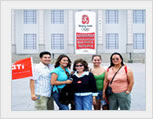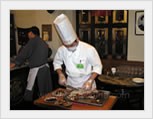
Chinese Herbal Medicine
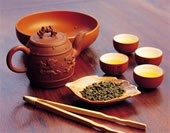 Thousands of plants and herb associated with the treatment of ailments have been discovered by the Chinese, and comprises a very large system of herbal medicine. The nature and properties of these plants are analyzed as 'cold and hot' or 'yin and yang' and utilize a variety of raw materials to create medical mixtures. The medicines thus produced very different properties to western medicine. The Compendium of Materia Medica by Li Shizhen in the Tang Dynasty (618 - 907) classifies and records 1892 types of herbs, and
Thousands of plants and herb associated with the treatment of ailments have been discovered by the Chinese, and comprises a very large system of herbal medicine. The nature and properties of these plants are analyzed as 'cold and hot' or 'yin and yang' and utilize a variety of raw materials to create medical mixtures. The medicines thus produced very different properties to western medicine. The Compendium of Materia Medica by Li Shizhen in the Tang Dynasty (618 - 907) classifies and records 1892 types of herbs, and
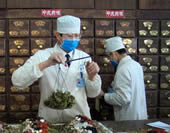 gives detailed information. Today, they can be divided into roughly 10 categories. Herbal Medicine, sometimes referred to as Herbalism or Botanical Medicine, is the use of herbs, a plant or plant part valued for its medicinal, aromatic or savory qualities, for their therapeutic or medicinal value. Herb information is methodically collected and often formed into well-defined herbal pharmacopoeias, with herbal lore of native people forming a large part of the modern pharmacopoeia.Various roots are used in herbal
gives detailed information. Today, they can be divided into roughly 10 categories. Herbal Medicine, sometimes referred to as Herbalism or Botanical Medicine, is the use of herbs, a plant or plant part valued for its medicinal, aromatic or savory qualities, for their therapeutic or medicinal value. Herb information is methodically collected and often formed into well-defined herbal pharmacopoeias, with herbal lore of native people forming a large part of the modern pharmacopoeia.Various roots are used in herbal
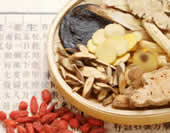 medicine, and the roots of specific plants such as ginseng, Chinese gromwell, and Taiwan Angelica root have specific properties. The World Health Organization (WHO) estimates that 4 billion people, 80 percent of the world population, presently use herbal medicine for some aspect of primary health care. Substances derived from the plants remain the basis for a large proportion of the commercial medications used today for the treatment of heart disease, high blood pressure, pain, asthma, and other problems.
medicine, and the roots of specific plants such as ginseng, Chinese gromwell, and Taiwan Angelica root have specific properties. The World Health Organization (WHO) estimates that 4 billion people, 80 percent of the world population, presently use herbal medicine for some aspect of primary health care. Substances derived from the plants remain the basis for a large proportion of the commercial medications used today for the treatment of heart disease, high blood pressure, pain, asthma, and other problems.
Your Question & Quick Answer*We welcome and appreciate your questions & reviews
User Comments
Booking Procedures | Terms & Conditions | Payment Methods | Links | Site Map | About Us | Contact Us | Travel Agent
Copyright 2008, All rights reserved.. itourbeijing.com ,china culture, china introduction
TEL: 86-10-85711972 (Universal) 1-888-288-9328 (North America) E-mail: contact@itourbeijng.com
Home | China Tours | Beijing Tours | Tibet Tours | China Travel | Beijing Travel | Shanghai Travel
